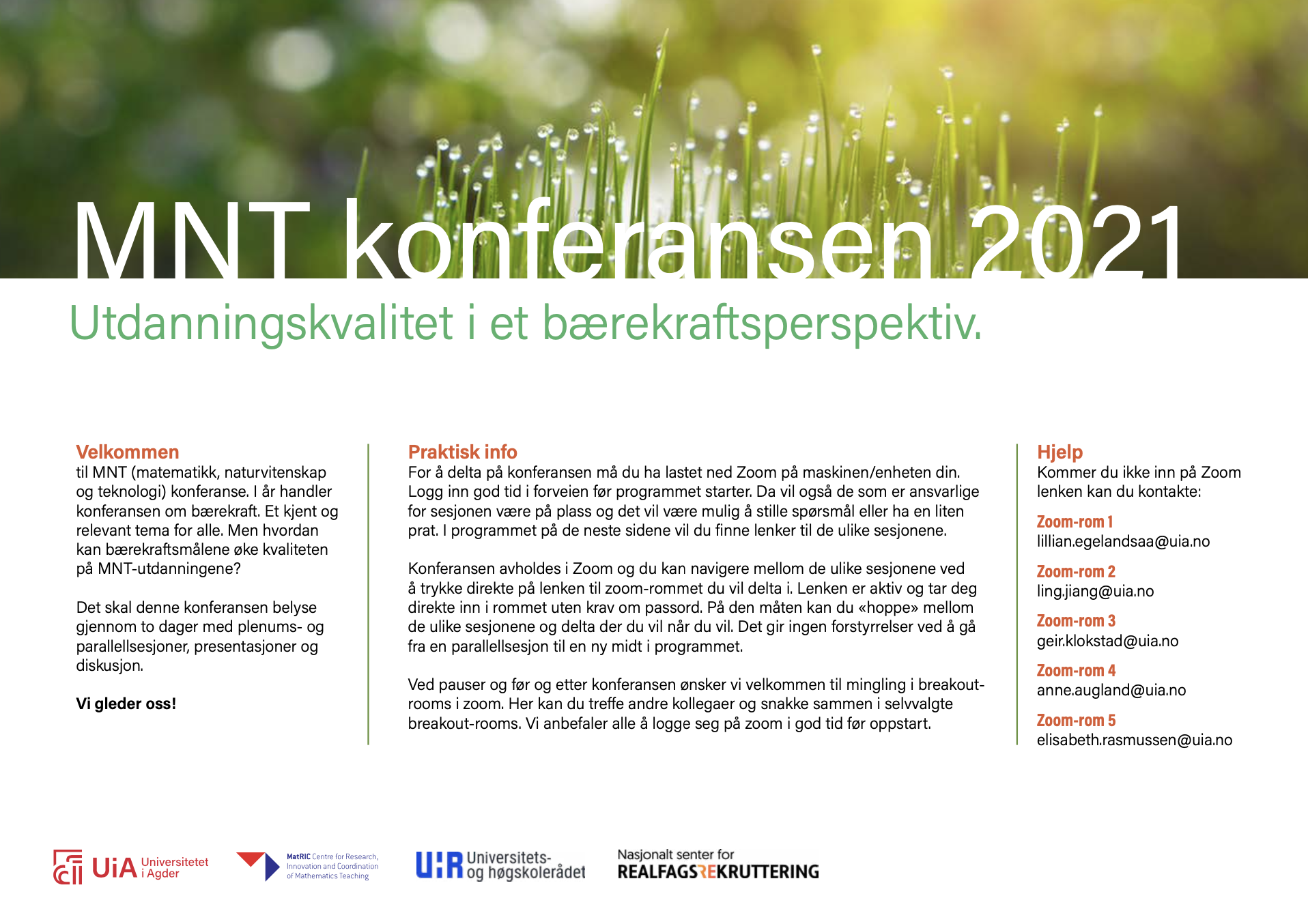Utvikling av begrepstester for å evaluere læringsdesign
DOI:
https://doi.org/10.5324/njsteme.v5i1.3926Sammendrag
Motivasjonen for å endre undervisningsopplegg er å øke studentenes læring. For å måle effekten av endringer eller identifisere vanlige misforståelser innen fagområdet matmikrobiologi har vi utviklet en begrepstest (Food Microbiology Concept Inventory). Testen ble videreutviklet fra lignende tester i mikrobiologi og forfatternes egne erfaringer. I tillegg ble matbransjen spurt om hvilken mikrobiologikunnskap som de mener er essensiell for en kandidat med bachelorgrad i matteknologi. En spørreundersøkelse ble utviklet og sendt ut til 268 aktører fordelt på akademia, instituttsektor, industri og forvaltning. Den totale svarprosenten i undersøkelsen var 20,5%, og 56% av respondentene var fra industrien. Uavhengig av respondentenes utdanning eller arbeidsplass var det stor enighet om de fem viktigste påstandene eller spørsmålene i undersøkelsen. Disse omhandlet overlevelse og vekst av mikroorganismer (Q21), mikroorganismenes påvirkning på produktkvalitet og mattrygghet og overvåkning av disse (Q36 og Q45), mikroorganismer og sykdom (Q43), samt bruk av prosessteknologi påvirker mikrobiota (Q44). Begrepstesen ble designet for å kunne vurdere studentenes forståelse av matmikrobiologi før, underveis og etter gjennomført bachelorstudium. Første gjennomkjøring av testen viser at flere iterasjoner er nødvendig før en pålitelig metode er etablert.
Downloads
Nedlastinger
Publisert
Utgave
Seksjon
Lisens
Opphavsrett 2021 Anita Nordeng Jakobsen, Per-Odd Eggen, Rolf Jonas Persson, Lisbeth Mehli

Dette verket er lisensiert under en Creative Commons Attribution 4.0 International Lisens.
The Nordic Journal of STEM Education licenses all content of the journal under a Creative Commons Attribution (CC-BY) licence. This means, among other things, that anyone is free to copy and distribute the content, as long as they give proper credit to the author(s) and the journal. For further information, see Creative Commons website for human readable or lawyer readable versions.
Authors who publish with this journal agree to the following terms:
1. Authors retain copyright and grant the journal right of first publication with the work simultaneously licensed under a Creative Commons Attribution License that allows others to share the work with an acknowledgement of the work's authorship and initial publication in this journal.
2. Authors are able to enter into separate, additional contractual arrangements for the non-exclusive distribution of the journal's published version of the work (e.g., post it to an institutional repository or publish it in a book), with an acknowledgement of its initial publication in this journal.
3. Authors are permitted and encouraged to post their work online (e.g., in institutional repositories or on their website) prior to and during the submission process, as it can lead to productive exchanges, as well as earlier and greater citation of published work (See The Effect of Open Access

